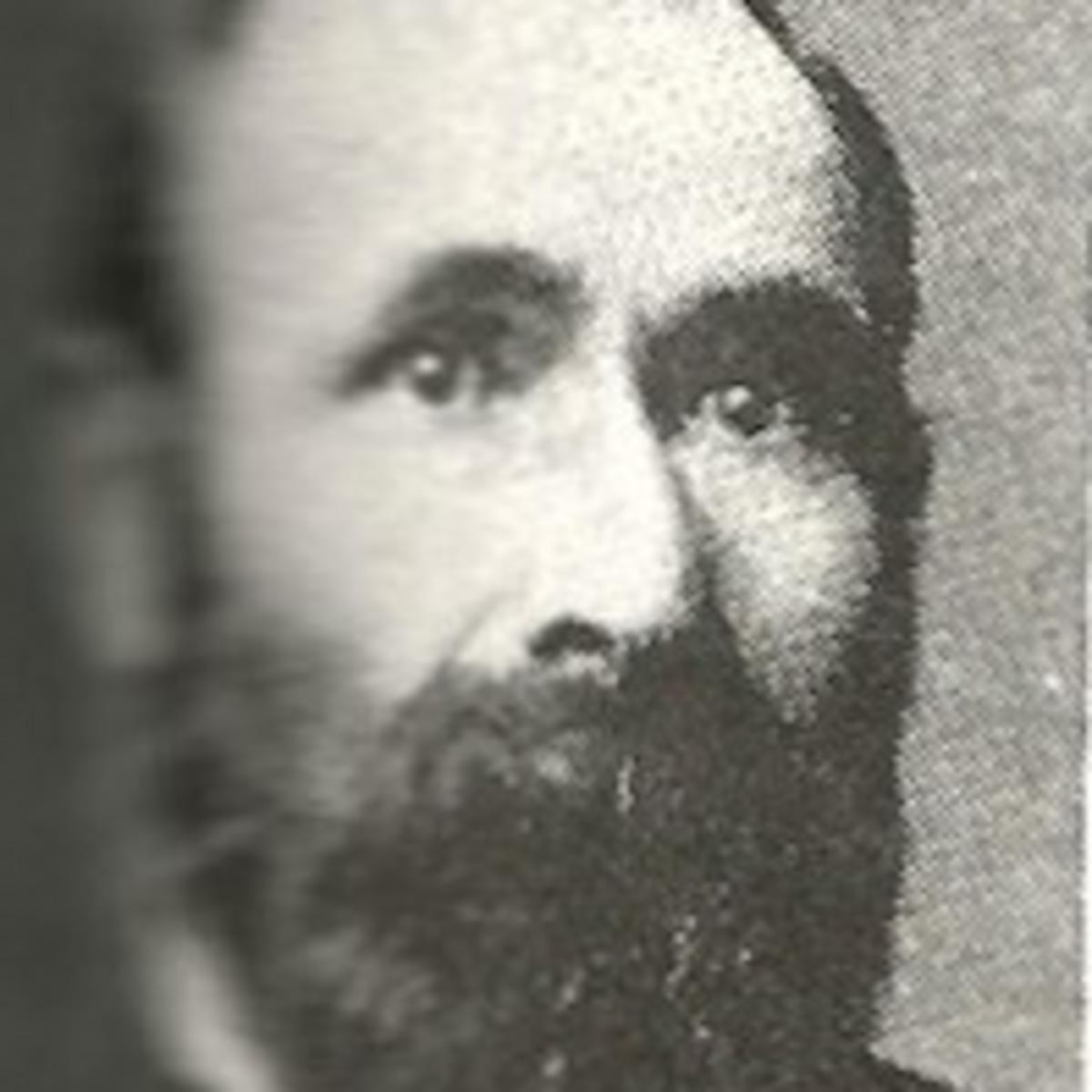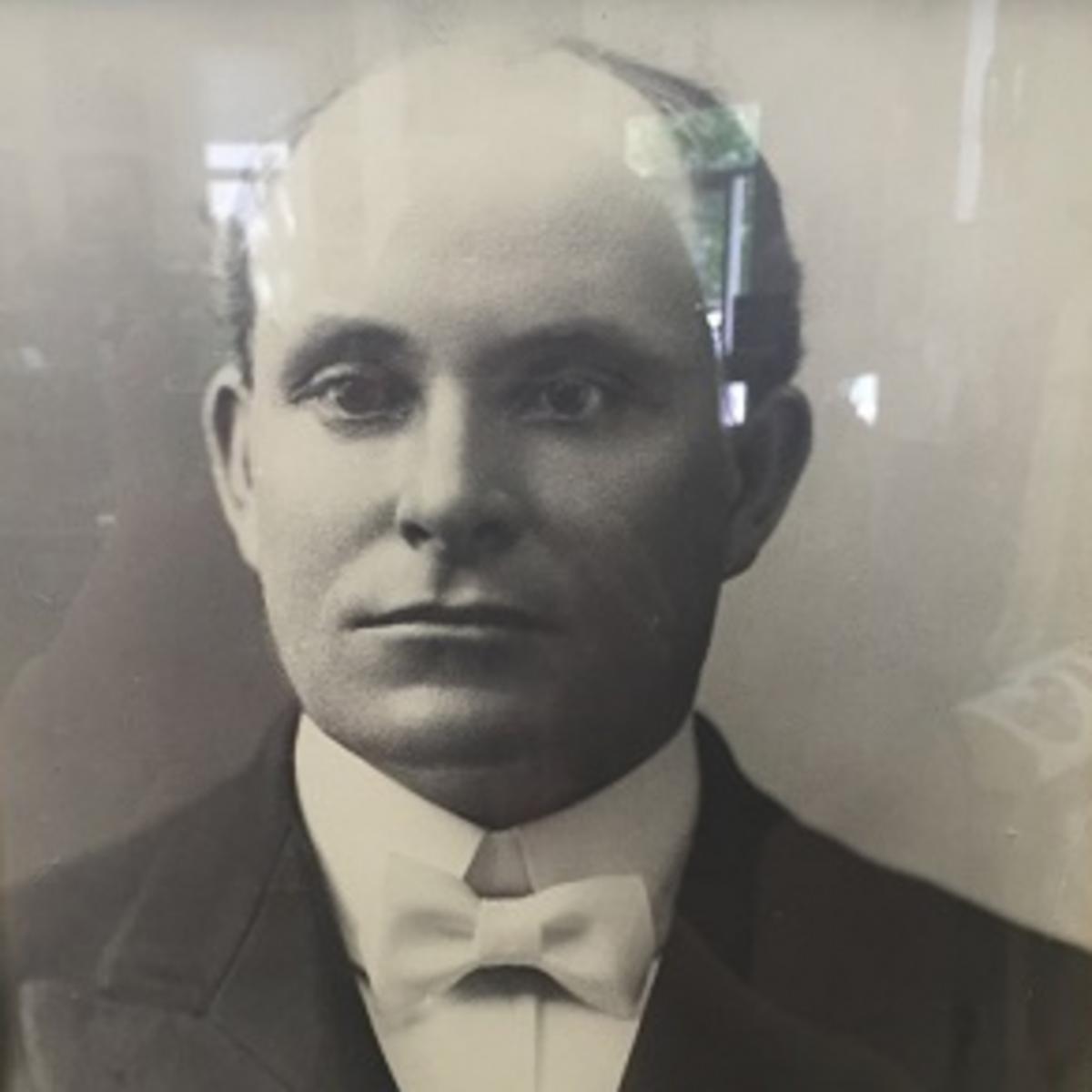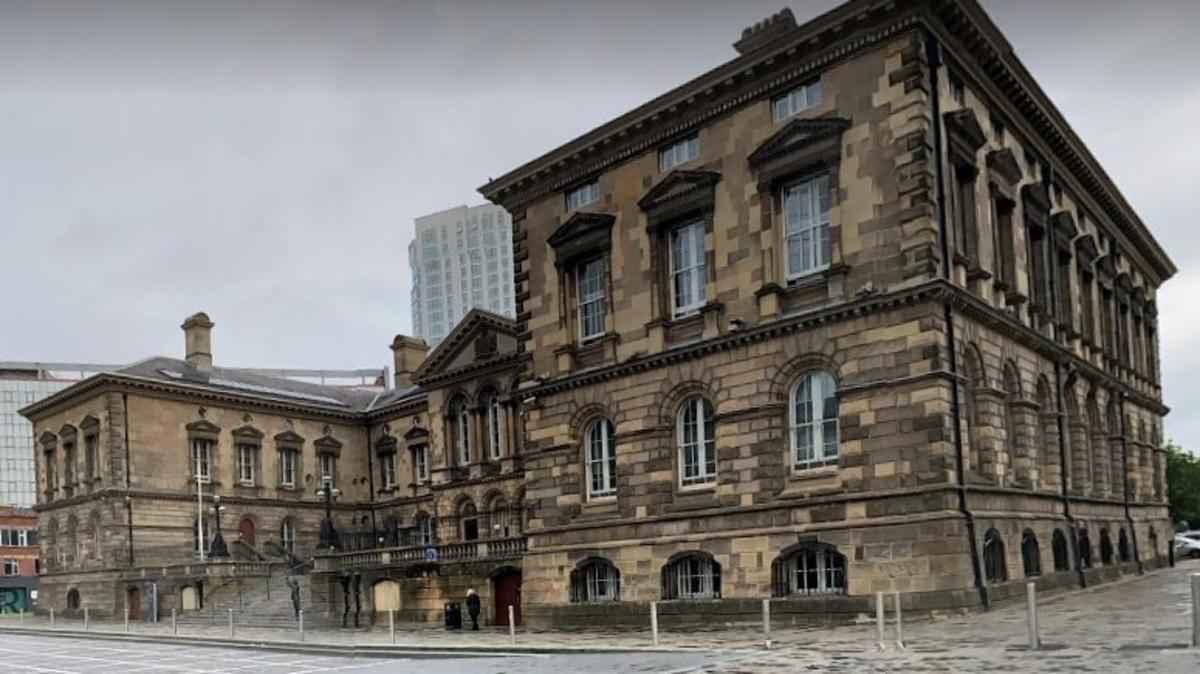An imposing building, constructed as its name suggests to house officials dealing with goods being shipped to and from the port, the Custom House sits on Donegall Quay in what is now the Cathedral Quarter of Belfast. It has housed a variety of government departments over the years. But here in the late nineteenth century, missionaries from the Church of Jesus Christ of Latter Day Saints frequently held meetings and preached the principles of the restored gospel.
It had been more than twenty years since missionaries were assigned to Ireland when Elders Robert Marshall and George Wilson arrived in Belfast in May 1884. This was the beginning of a new and productive era for the preaching of the gospel in the Emerald Isle.
Some of the missionaries who would preach here were natives of Ireland who had emigrated after their conversion.

George Wilson was born in Armagh in 1831, and baptized in 1848 in Scotland, where his family had moved for better work opportunities.

Robert Marshall was born in Antrim.
He was baptized in 1868, and had emigrated in 1872 with his wife and infant daughter.

Robert W. Sloan was born in Londonderry of convert parents who emigrated in 1863 when he was still a child.
He returned as a missionary later in 1884.

Joseph D. Smith was born in Essex and baptized as a child. He emigrated with his parents as a young man in 1866, and was married with a large family when he returned to Britain as a missionary.
But the majority of the missionaries associated with the Custom House in this era were born in the U.S. of British converts.

Francis Greenwell’s parents had left England as converts in 1854 and were working their way towards Nebraska for the trek west when he was born.
He served in Britain as a missionary from 1883 to 1885 and was the presiding elder in Ireland for some of that time.

James L. McMurrin was born in Salt Lake City of Scottish-born parents who had emigrated in 1856. He served in the British Mission from 1884 to 1886. He would later return to Britain as a missionary and serve in the European Mission presidency.

Edward D. Clyde was born in Heber City, Utah, but his mother was from Ireland.
He was called as a missionary at age 20 and spent the majority of his time in Ireland.

James P. Low was born in Salt Lake City of Scottish parents and baptized as a child.
He served in the British Mission from 1885 to 1887, for some of that time as president of the Irish Mission.

And David Hyrum Morris was born in New York to English converts who had married on the ship on which they both emigrated in 1855.
He would serve in the British mission from 1886 to 1888.
A series of letters published in the Millennial Star tracks the progress of the missionary work in and around Belfast. In the Summer of 1884 Elder George Wilson wrote from there:
Since my arrival I have been endeavoring to get an opening among the people, and have been able in a small degree to do so. But this is a thing pretty hard to accomplish. Through faith and perseverance however I hope to plant the standard of Zion in my native land, for I feel assured there are many honest people here who will yet rejoice in the glorious light of truth.
Brother William Cavanagh and I have held quite a number of meetings in and out of doors and the people as a rule have paid good attention. I have enjoyed much freedom of speech and a good degree of the Holy Spirit to assist me in my labors. The custom house is the general place we hold meetings in and thus far we have encountered but little opposition for which I feel to thank the Lord.
Some months later Elder Wilson would report:
At the custom house I have large and attentive audiences as usual. Many express a belief in the doctrines set forth by us, and in due time some of them will come forth and obey them. But it takes time for people to get over their prejudices and preconceived notions. One of the greatest difficulties in the way is in getting access to their houses, but once in we are like a severe cold, hard to get out.
George Wilson and Robert Marshall were then the only two missionaries in Ireland, but by October 1884, when John Henry Smith (European Mission president) visited the area, there were twenty-nine members locally. A branch was organised with William Cavanagh as president.
In November 1884 Elders Greenwell and McMurrin arrived in Belfast, Elder Greenwell replacing George Wilson as presiding Elder for Ireland. The work evidently moved on apace, despite opposition, as the branch grew to sixty members by April 1885. Elder Sloan was appointed to Ireland in that month.
In June 1885 Elder McMurrin wrote to the Star:
I am greatly pleased to be able to inform you that our brethren and sisters are in possession of excellent health and rejoicing exceedingly in the glorious gospel of the Son of God. Not only do they seek to promote their own interests, spiritual and temporal, but they are very desirous of laboring in such a manner as will be subservient to the great cause with which they have become associated, and beneficial to the people generally.
Our outdoor meetings are in full blast and are exceedingly interesting and profitable, to us at least, and judging from the large crowds to whom we have had the privilege of bearing our testimony and the earnest and respectful manner in which they have generally listened to us, I believe others have been greatly benefited too. We are not without opposition however, and feel to thank the Lord that such is the case for in the words of our Divine Master, “Woe be unto you when all men speak well of you, for so did their fathers of the false prophets.”
Last Sunday we held a meeting in the open air at the customhouse steps, and had a very enjoyable time, notwithstanding the bitter feeling with which we usually have to contend at that much frequented place.

The Belfast Evening Telegraph of July 21 1885 referred to a Mormon from London preaching the following day at the custom house steps. This was Charles W. Penrose, then president of the London Mission, who was visiting Belfast.
Penrose was born in London, baptized at age 18, and emigrated some ten years later, but would return to the British Isles as a missionary four times.
On this occasion, certain questions had been put to Elder Penrose and he reported in a letter to the Telegraph that he had intended replying, but he was prevented by a couple of “Christian” gentlemen who raised a disturbance while I was addressing a very large audience who were willing to listen and urged me to proceed. Two policemen compelled me to retire claiming that I was making a disturbance and allowed the men who made the uproar, in company with a few roughs, to take my place, and harangue the audience. This I think is a singular way of preserving the peace.
Elder Sloan also had a letter published in the Star relating to this meeting at the Custom House. He had written to the newspaper, deploring the inaccurate reporting of the event, as well as the un-Christian attitudes of some locals towards ministers of the gospel. Although some of the very large crowd did jeer, many were interested and sympathetic to the missionaries. He concludes his letter to the Star: I am sure good will result, and we have won some friends and hope to gain some converts.
In November 1886 correspondence published in the Star included the following:
President Jos. D. Smith, writing from Belfast under date of November 9 1886, says this summer has been quite unfavorable to the work in Ireland, so much political strife and bloodshed that but little outdoor speaking could be done. Although we have been holding meetings until the last Sunday in October, when we spoke at the Custom House to a quiet and intelligent audience. Many became much interested, and one of our particular friends, who always defends our cause, came to the meeting last Sunday evening and informed me we were enquired for last Sunday, many waiting to hear us. But our priesthood meeting occupied our time, and it was quite cold, so much so that I hardly think it wisdom to expose ourselves in such inclement weather. But we may sometimes find a mild Sunday when we may be able to stand it.
The police have listened attentively to us, and we have had no disturbance in our meetings thus far this summer. And at this date we have the good feelings of the majority of the crowds which assemble at the custom house and some good may be done another summer by acting wisely and not causing unnecessary persecution.
By May 1887, it had become impossible to rent a hall for meetings, as there was too much ill feeling against the missionaries. However with the season for outdoor preaching beginning again, the missionaries were again preaching on the Custom House steps.
In September 1888, Elder Morris wrote to the Star, giving an overview of the work in Ireland. He reported that preaching was limited to Ulster in the north and Belfast was the only established branch and mission headquarters. The number of converts was limited and the police would no longer allow missionaries to preach on the Custom House steps, for fear of disturbances which might ensue. However, Morris reported:
The meetings are very well attended and the saints are striving to live up to the requirements of the gospel. We have the new edition of the Book of Mormon for sale in seven of the principal book stores in Belfast. At the same time, we are endeavoring
to get them circulated among the people by producing the evidence that proves the book to be of divine origin. In conclusion I may say the spirit of unity has existed between the travelling elders during the year that I have labored in Ireland. I never have heard one cross word between them on any subject.
These missionaries were all part of the work of salvation in Ireland during the later years of the nineteenth century. Despite opposition, many converts were baptised, and then joined the main body of the church in the U.S., in order to escape that opposition. George Wilson was no doubt expressing all of the missionaries’ feelings when he declared:
There is no labor so inviting as that of saving souls. There is a comfort in laboring among saints but a thousand times more among strangers, for every faculty of the mind is brought into operation. We are also left to depend upon the promises of the Lord and by faith prove him true to his word, which gives us confidence in the hour of adversity when there is no other power to save.
Sources:
Millennial Star, online at: https://lib.byu.edu/collections/mormon-publications-19th-20th-centuries/m/#latter-star
History of the Church of Jesus Christ of Latter Day Saints in Ireland since 1840. Brent A. Barlow, MA Thesis, Brigham Young University, 1968. Online at: https://scholarsarchive.byu.edu/etd/4503/
History of the Church of Jesus Christ of Latter Day Saints in Ireland 1840-2004. Gertrude E. Boyd. Unpublished dissertation, Stranmillis College, Queen’s University Belfast, 2004.
